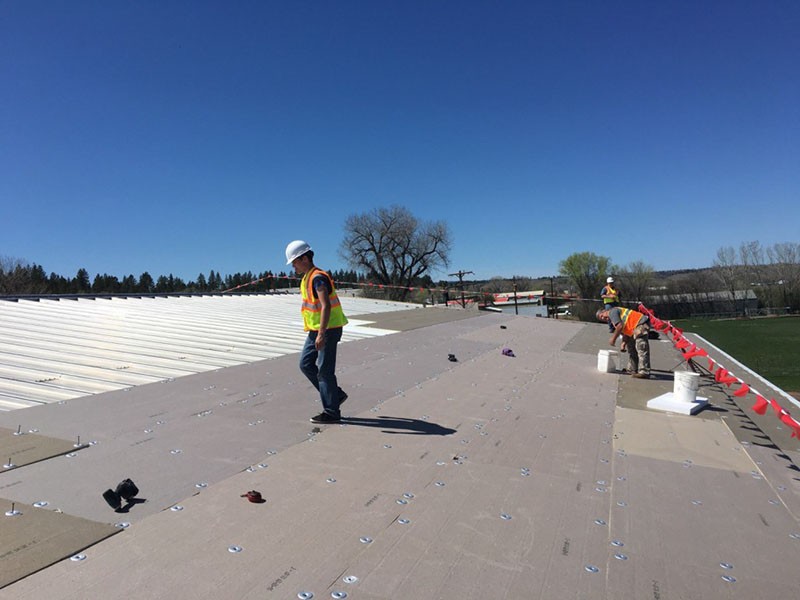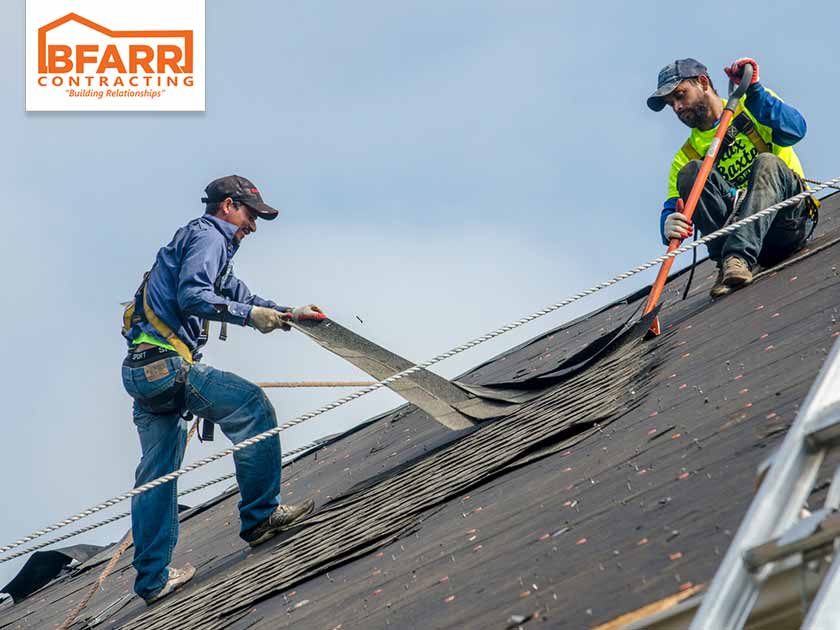
Bidding Roof Jobs: Know Your Worth
When it comes to bidding on roof jobs, it’s important to know the worth of your services. Roofing is a crucial part of any building, providing protection and insulation, so it’s essential to understand the value you bring to each project. By knowing the worth of your skills and expertise, you can confidently bid on roof jobs and ensure you are compensated appropriately.
Knowing the worth of your services
As a roofing professional, you have invested time, money, and effort into gaining the skills and knowledge required for the job. From understanding different roofing materials to being familiar with the latest installation techniques, your expertise has value. You provide a service that is essential to the functioning and longevity of any building.
Why bidding on roof jobs is important
Bidding on roof jobs allows you to showcase your expertise and secure new projects. It’s an opportunity to highlight the value you bring to the table and convince potential clients of your capabilities. By effectively communicating your worth, you can differentiate yourself from competitors and increase your chances of winning the bid.
“By knowing the worth of your skills and expertise, you can confidently bid on roof jobs and ensure you are compensated appropriately.”
Why Accurate Bidding Matters
Bidding on roofing jobs is worth your time and effort. But it’s crucial to know the value of your services before submitting a bid. Accurate bidding can make or break your business success.
- Secure fair compensation: An accurate bid ensures that you are paid what your work is worth. By assessing the scope of the job, material requirements, and labor costs, you can determine a fair price for your services.
- Maintain profitability: Accurate bidding helps you maintain a healthy profit margin. If your bid is too low, you may end up losing money on the project. On the other hand, if your bid is too high, you may lose potential customers to competitors.
- Build trust with clients: When you provide an accurate bid, it demonstrates professionalism and transparency. Clients appreciate knowing exactly what they’re paying for and are more likely to trust your expertise and rely on your services again in the future.
Knowing the value of your services and accurately bidding on roof jobs is essential for the long-term success of your business. It ensures fair compensation, maintains profitability, and builds trust with clients. Take the time to evaluate each project thoroughly and provide accurate bids to set yourself up for success in the roofing industry.
Evaluating the Project
When it comes to bidding roof jobs, it is important to accurately evaluate the project to determine its worth. Knowing the value of your services will ensure that you are providing a fair and competitive bid to your potential clients.
- Roof Inspection: Start by conducting a thorough roof inspection to assess the condition of the existing roof. Look for any damages or areas that require repairs, as this will impact the overall scope of the project.
- Materials and Labor: Consider the cost of materials and labor that will be required to complete the project. Take into account the type of roof, the size of the project, and any additional services that may be necessary, such as insulation or gutter installation.
- Timeline: Determine the estimated timeline for the project. Consider the availability of materials, the weather conditions, and the resources that will be needed to complete the job within the specified timeframe.
- Competitor Analysis: Research your competitors to understand the average cost of similar roof jobs in your area. This will help you gauge where your pricing should be to stay competitive in the market.
By carefully evaluating the project, you will have a better understanding of the value of your services and be able to provide an accurate and competitive bid to your clients. Remember, it is important to balance competitive pricing with fair compensation for your expertise and services.
Understanding the Scope
When it comes to bidding roof jobs, it’s essential to understand the scope of the project. This means taking the time to thoroughly assess the roof and determine what needs to be done. By doing so, you can provide an accurate estimate of the time, materials, and labor required.
Your expertise in roofing is worth its weight in gold. Homeowners rely on your knowledge and skills to ensure their roofs are safe and secure. That’s why your bidding process should reflect your worth – you are the professional they can trust to get the job done right.
When assessing the scope of a roof job, consider factors such as the size of the roof, the type of roofing material, any necessary repairs or replacements, and the complexity of the job. This information will help you determine the amount of time and resources needed to complete the project.
Creating a detailed scope of work is crucial. This document outlines the specific tasks that need to be completed and serves as a reference throughout the project. It ensures that both you and the homeowner are on the same page, reducing the likelihood of misunderstandings or disputes.
Remember, bidding roof jobs is not just about providing a low price. It’s about accurately assessing the scope of the project and delivering quality work that matches your worth as a roofing professional.
Calculating Materials
When bidding on roof jobs, it is important to accurately calculate the amount of materials needed. This will ensure that you are pricing your services correctly and are able to accurately estimate the worth of the job.
There are several factors to consider when calculating materials for a roof. First, you will need to measure the size of the roof to determine the amount of roofing material required. This can be done by measuring the length and width of the roof and multiplying the two measurements together. Additionally, you will also need to take into account the pitch of the roof, as this can affect the amount of materials needed.
Once you have determined the size of the roof, you will need to decide on the type of roofing material to be used. There are several options available, including asphalt shingles, metal roofing, and tile roofing. Each type of material will have its own requirements in terms of the amount needed per square foot.
It is also important to factor in any additional materials that may be needed for the job. This can include underlayment, flashing, and nails. These materials will help to ensure that the roof is properly installed and will provide the necessary protection against the elements.
Once you have determined the amount of materials needed, it is important to calculate the cost of these materials. This can be done by obtaining quotes from suppliers and factoring in any additional costs such as delivery fees.
By accurately calculating the materials needed for a roof job, you will be able to provide an accurate bid that reflects the true worth of your services. This will help to ensure that you are not underpricing your work and are able to make a profit on each job.
Estimating Labor Costs
When it comes to bidding on roofing jobs, it’s crucial to know the value of your labor. Estimating labor costs accurately is key to ensuring you make a profit on every job you take on. Here are some tips to help you estimate labor costs:
- Assess the scope of the job: Before you can estimate labor costs, you need to know what exactly the job entails. Take the time to thoroughly examine the project and understand the scope of work required.
- Break it down: Once you have a clear understanding of the job, break it down into smaller tasks. This will help you estimate how much time each task will take and allow you to calculate labor costs more accurately.
- Consider skill levels: Different tasks may require different skill levels. Take this into account when estimating labor costs. More complex tasks may require more skilled workers, which can affect the overall cost.
- Factor in efficiency: Consider the efficiency of your team when estimating labor costs. If you know that your team works at a certain speed, take that into account to avoid underestimating or overestimating the labor costs.
- Account for overhead: Don’t forget to include overhead costs when estimating labor costs. This could include things like training, insurance, and equipment maintenance.
By taking these factors into consideration, you can more accurately estimate labor costs and ensure that you are bidding on roofing jobs with confidence, knowing that your services are worth the price you are asking.
Accounting for Overhead
When it comes to bidding on roofing jobs, it’s important to know your worth. This means taking into account not only the direct costs associated with the job, but also the overhead expenses that are necessary to keep your business running smoothly.
What is overhead?
- Overhead includes the costs of running your office, such as rent, utilities, and office supplies.
- It also includes expenses related to your employees, such as salaries, benefits, and training.
- Additionally, overhead may include expenses for advertising, marketing, and other business development efforts.
- Insurance premiums, permits, licenses, and taxes are also considered overhead expenses.
Why is accounting for overhead important?
Accounting for overhead is crucial because it ensures that you are pricing your services appropriately. If you fail to account for these expenses, you may end up undercharging for your work and losing money in the long run.
How to account for overhead in your bidding process?
- Calculate your total annual overhead expenses.
- Estimate the number of jobs you expect to complete in a year.
- Distribute your overhead expenses across the anticipated number of jobs to determine the overhead cost per job.
- Add the overhead cost per job to your direct costs to arrive at your total cost per job.
- Set your profit margin and add it to the total cost per job to determine your final bid price.
By accounting for overhead, you ensure that your bids accurately reflect the true value of your services. This allows you to maintain a profitable business while still providing high-quality roofing work.
Taking into Consideration Time
When bidding on roof jobs, it’s essential to consider the amount of time it will take to complete the project. Time is a valuable resource, and as a roofing service provider, you need to know how much your time is worth.
Understanding the value of your time
- Consider the complexity of the roofing project. More intricate jobs may require more time and attention to detail.
- Take into account the size of the roof. Larger roofs usually require more time for installation or repairs.
- Factor in any additional services or materials required. If there are extra tasks, such as gutter installation or skylight repairs, it will increase the time needed for the job.
Benefits of knowing your worth
Knowing the value of your time will help you:
- Accurately estimate the project cost and provide an appropriate bid to the client.
- Ensure you are not undercharging for your services and losing out on potential profit.
- Demonstrate your professionalism and expertise in the roofing industry.
- Build trust with your clients by showing that you know the value of your time and skills.
Conclusion
Time is a crucial factor to consider when bidding on roof jobs. As a roofing service provider, it’s important to know the value of your time and factor it into your project costs. This will help you provide accurate bids, maximize your profit, and showcase your professionalism to clients.
Factors That Affect Bidding
When it comes to bidding on roof jobs, there are several factors that can affect the final cost. It’s important to know the worth of your services and understand how these factors can impact your bidding process.
Here are some key factors to consider:
- Roof Size: The size of the roof is a major factor in determining the cost of the job. Larger roofs will require more materials and labor, which will increase the overall bid.
- Roof Type: Different roof types require different materials and installation techniques. For example, a flat roof may require additional waterproofing measures, while a pitched roof may require special tools for the installation of shingles.
- Roof Condition: The condition of the roof can also impact the cost of the job. If there are existing issues or damages that need to be addressed, it may require additional time and materials to repair.
- Accessibility: The accessibility of the roof can also affect the bidding process. If the roof is difficult to access or requires special equipment, it may increase the overall cost.
- Location: The location of the job can also play a role in the bidding process. If the job site is far away or in an area with high labor costs, it may increase the overall bid.
- Timeline: The timeline for completing the job can also impact the bidding process. If a customer requires a quick turnaround time, it may require additional resources or overtime work, which can increase the overall cost.
By taking these factors into account, you can ensure that your bids accurately reflect the value of your services and the specific requirements of each job. It’s important to communicate with your customers and provide detailed estimates that take these factors into consideration.
Remember, knowing the worth of your services and understanding how these factors affect bidding will help you secure profitable and successful roof jobs.
Weather Conditions
When it comes to bidding roof jobs, it’s worth knowing the weather conditions that can affect your work. Inclement weather can lead to delays, damage, and additional costs. Here are some weather conditions to keep in mind:
- Rain: Rain can make rooftops slippery and dangerous to work on. It is important to plan your jobs accordingly, taking into account the amount of rain expected and the time it will take for the roof to dry.
- Wind: Strong winds can be hazardous for roofers, especially when working at heights. Windy conditions can also cause roofing materials to become dislodged or damaged. Consider the wind speed and direction before starting a project.
- Hail: Hail can cause significant damage to roofs, especially those made of shingles. Be aware of any potential hailstorms in the forecast and take precautions to protect yourself and the roof.
- Snow: Snow can add weight to the roof and cause structural issues if not properly managed. It is important to factor in the amount of snowfall and have a plan for removing it safely.
- Extreme temperatures: Extreme heat or cold can affect the performance of roofing materials and impact the installation process. Take into account the temperature range and adjust your plans accordingly.
In conclusion, understanding the weather conditions that can impact your roofing jobs is essential for a successful bid. By being prepared and knowing how to adapt to different weather conditions, you can ensure the quality and safety of your work, while also providing accurate estimates to your clients.
Accessibility Challenges
When it comes to bidding roof jobs, it’s important to understand the value of your services and the potential challenges that may arise. One major challenge that can affect the worth of a roof job is accessibility.
Roof accessibility can vary greatly depending on the location and type of building. Certain jobs may require additional equipment or safety measures to ensure workers can safely access the roof. This can include scaffolding, harnesses, or even specialized lifts.
Another accessibility challenge to consider is the height of the building. Taller buildings may require more time and effort to reach the roof, which can impact the overall cost and timeline of the project.
Furthermore, the location of the building can also present accessibility challenges. Buildings situated in busy urban areas may have limited access points or parking restrictions, which can make it more difficult for workers and equipment to reach the roof.
It’s important to thoroughly evaluate these accessibility challenges when bidding on roof jobs. Taking into account the necessary equipment, safety measures, and additional time needed can help ensure an accurate and fair bid. This will not only protect your profit margins but also ensure a successful and efficient project for the client.
Unforeseen Issues
When bidding on roofing jobs, it’s important to know that there can be unforeseen issues that may arise during the project. These issues can add extra costs and time to the job, so it’s crucial to account for them in your bidding process.
Why are unforeseen issues worth knowing about?
- They can significantly impact the project timeline
- They can increase the cost of materials and labor
- They can require additional expertise or specialized equipment
Examples of unforeseen issues:
- Water damage: An initial inspection may not reveal the extent of water damage in the roof structure, leading to additional repairs or replacements.
- Mold or rot: When removing old roofing materials, you may discover mold or rot that needs to be addressed before continuing with the project.
- Structural issues: Some roofs may have underlying structural issues that only become apparent during the construction process, requiring additional support or reinforcement.
- Code compliance: Unforeseen issues can arise when inspecting a roof for code compliance, such as inadequate insulation or improper ventilation.
How to account for unforeseen issues in your bidding:
| 1 | Conduct a thorough initial inspection to identify any potential issues. |
| 2 | Add a contingency allowance to your bid to cover any unforeseen issues that may arise. |
| 3 | Communicate with the client about the possibility of unforeseen issues and the potential impact on the project. |
| 4 | Regularly update the client on any issues that arise and work together to find solutions. |
By understanding and accounting for unforeseen issues in your bidding process, you can ensure that your services are accurately priced and that you can effectively manage any challenges that may arise during the project.
Competitor Pricing
Know Your Worth!
When bidding for roof jobs, it is essential to understand the value of your services compared to your competitors. By knowing what others are charging, you can determine a fair and competitive price for your customers.
How to gather information:
- Research online: Look up local roofing companies and gather information about their prices.
- Ask around: Talk to fellow roofers or contractors in your area to find out what they charge for similar jobs.
- Consult industry resources: Check trade publications or websites for industry standard pricing guides.
Factors to consider when comparing prices:
- Quality of materials: Make sure to compare apples to apples. Different materials and brands can have a significant impact on pricing.
- Experience and expertise: Consider the level of expertise and experience of your competitors. Higher quality work may come with a higher price.
- Scope of work: Compare the services included in the price quotes. Make sure you are offering a comprehensive package.
Use the information to your advantage:
Once you have gathered the necessary information, you can use it to your advantage when bidding for roof jobs.
| ABC Roofing | $5,000 – $7,000 |
| XYZ Roofing | $6,000 – $8,000 |
| 123 Roofing | $4,500 – $6,500 |
With this information, you can position yourself competitively. Depending on the factors mentioned above, you can decide whether to offer a lower price, a higher price, or match your competitors.
Remember, your worth is not solely determined by price. Your reputation, quality of work, and customer satisfaction are also important factors. Use pricing as a tool to attract customers, but make sure to deliver value that exceeds their expectations!
Developing a Pricing Strategy
When it comes to bidding roof jobs, it’s important to know the value of your services. Understanding the worth of your work will not only help you price your jobs accurately but also ensure that you are being compensated fairly for your skills and expertise.
Here are some key factors to consider when developing a pricing strategy for your roofing business:
- Evaluate the scope of the roof job: Take into account the size, complexity, and condition of the roof. Is it a simple repair job or a complete roof replacement? Assessing the scope of the job will help you determine the amount of time, materials, and labor required.
- Research market rates: It’s essential to know the prevailing rates in your area for similar roofing services. Research your local market to understand the competitive landscape and set your prices accordingly.
- Consider your overhead costs: Factor in your business expenses, such as insurance, equipment, advertising, and employee wages. By including these costs in your pricing strategy, you can ensure that your business remains profitable.
- Calculate your desired profit margin: Determine the level of profit you want to make on each job. This will help you set a pricing structure that meets your financial goals and allows for growth and investment in your business.
- Offer additional value: Consider offering additional services or benefits to differentiate your business from competitors. This could include warranties, maintenance plans, or specialized roofing techniques. Highlighting these unique selling points can justify higher prices.
- Provide clear and detailed proposals: When presenting your pricing to potential clients, provide a clear breakdown of the costs involved. This transparency builds trust with customers and allows them to see the value of your services.
Remember, a well-developed pricing strategy is crucial for the success of your roofing business. By knowing the value of your services and accurately pricing your jobs, you can ensure profitability and attract customers who appreciate the quality of your work.
Establishing Base Rates
When it comes to bidding roof jobs, it is important to know your worth. By establishing base rates for your services, you can ensure that you are charging a fair price for your work. This not only helps you to make a profit, but also allows you to provide top-quality service to your clients.
To determine your base rates, consider factors such as the size and complexity of the job, the materials required, and the time it will take to complete the project. Don’t be afraid to factor in any additional expenses or overhead costs that you may incur.
Key Points to Consider:
- Calculate the cost of materials and labor.
- Account for any additional expenses or overhead costs.
- Consider regional pricing standards.
- Factor in the desired profit margin.
By following these steps, you can establish a fair and competitive base rate for your roofing services. This will not only help you to accurately bid on jobs, but also ensure that you are providing value to your clients and operating a successful business.
|
Remember, knowing your worth and establishing base rates is crucial for successfully bidding on roof jobs. Take the time to evaluate your costs and determine a fair price for your services. This will not only benefit your business, but also ensure that your clients receive the quality they deserve.
Adding Variable Costs
When it comes to bidding on roof jobs, it’s important to know the value of your services. One factor that can greatly impact the final cost of a job is the addition of variable costs.
Variable costs are expenses that change depending on the specific details of the job. These costs can include materials, labor, equipment, and any other resources that are required to complete the project.
By understanding and accounting for these variable costs, you can ensure that your bids are accurate and reflective of the actual expenses associated with the job. This not only helps you cover your costs and make a profit, but it also positions you as a reliable and trustworthy contractor in the eyes of your clients.
When adding variable costs to your bids, it’s important to be thorough and detailed. Consider all factors that may impact the cost, such as the size of the roof, the pitch, the type of materials needed, and any additional requirements or challenges unique to the job.
Here are some key steps to consider when adding variable costs:
- Conduct a thorough inspection of the roof to assess its condition and any potential issues that may require additional resources or labor.
- Research and estimate the cost of materials required for the job. This can include roofing materials, tools, and any additional supplies needed for the project.
- Determine the amount of labor required and calculate the associated costs. Consider factors such as the number of workers needed, the time required to complete the job, and any specialized skills or certifications that may be required.
- Consider any additional costs related to equipment rental or transportation of materials to the job site.
- Factor in any overhead costs such as insurance, permits, and administrative expenses.
By carefully considering and adding these variable costs to your bids, you can provide accurate and competitive pricing to your clients. This not only helps you win more jobs but also ensures that you are fairly compensated for your services and resources.
Considering Job Complexity
When it comes to bidding on roof jobs, it is important to understand the value of your services. One key factor to consider is the complexity of the job.
A simple roof repair may not be worth bidding on if it only requires a few basic materials and can be completed quickly. On the other hand, a complex roof replacement or extensive repair may require specialized expertise and additional time and resources.
Before bidding on a job, take the time to assess the complexity of the project. Consider factors such as:
- The size of the roof
- The type of roofing material
- The extent of the damage or repair needed
- Any specific requirements or challenges unique to the job
By carefully evaluating the complexity of a job, you can determine whether it is worth bidding on and ensure that you are offering a fair and accurate estimate for your services.
Communicating Value to Customers
When it comes to bidding on roof jobs, it is important for customers to understand the worth of your services. Roofing is not just a simple task; it requires skill, expertise, and proper materials to complete the job successfully.
Here are some key points to communicate to your customers when bidding on roof jobs:
- Your knowledge: Let your customers know that you have the knowledge and experience to handle their roofing needs. Explain your years of experience, any certifications you hold, and your understanding of various roofing materials and techniques.
- The value of a well-maintained roof: Help your customers understand the importance of a well-maintained roof. Explain how a sturdy roof protects their home or business from water damage, structural issues, and other costly problems.
- The quality of your materials: Highlight the fact that you use only high-quality materials for your roof jobs. Explain how these materials ensure durability, longevity, and overall satisfaction for the customer.
- Your commitment to safety: Assure your customers that safety is a priority for you and your team. Explain the safety measures and equipment you use to protect both your workers and the property during the roof installation or repair process.
- Your attention to detail: Emphasize your attention to detail when it comes to roof jobs. Explain how you pay close attention to every aspect of the job, from measuring and planning to execution and clean-up, to ensure a flawless result.
Remember, effective communication is key when it comes to conveying the value of your services to customers. By letting them know the full scope of your knowledge, the worth of a well-maintained roof, the quality of your materials, your commitment to safety, and your attention to detail, you can set yourself apart from competitors and win bids for roof jobs.
Questions and Answers:
What is the book “Bidding Roof Jobs: Understand the Value of Your Services” about?
The book “Bidding Roof Jobs: Understand the Value of Your Services” is a guide for contractors and roofers on how to effectively bid on roofing jobs. It provides insights and strategies on how to assess the value of your services, factor in costs, and determine a fair and profitable price for your work.
Who is the target audience for the book?
The book “Bidding Roof Jobs: Understand the Value of Your Services” is specifically targeted towards contractors and roofers who want to improve their bidding process and maximize their profitability. It is also useful for anyone in the construction industry who is looking to gain a better understanding of how to accurately price their services.
How can this book help contractors and roofers?
This book can help contractors and roofers by providing them with valuable insights and strategies for properly assessing the value of their services. It teaches them how to factor in costs, such as materials and labor, and how to determine a fair and profitable price for their work. By following the guidelines in this book, contractors and roofers can improve their bidding process and increase their chances of winning profitable projects.
Does the book provide examples of bidding strategies?
Yes, the book “Bidding Roof Jobs: Understand the Value of Your Services” includes numerous examples of bidding strategies. It illustrates different scenarios and provides step-by-step instructions on how to evaluate costs, calculate profit margins, and determine the best pricing approach for each job. These examples serve as practical tools that contractors and roofers can apply to their own bidding processes.




